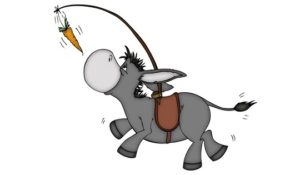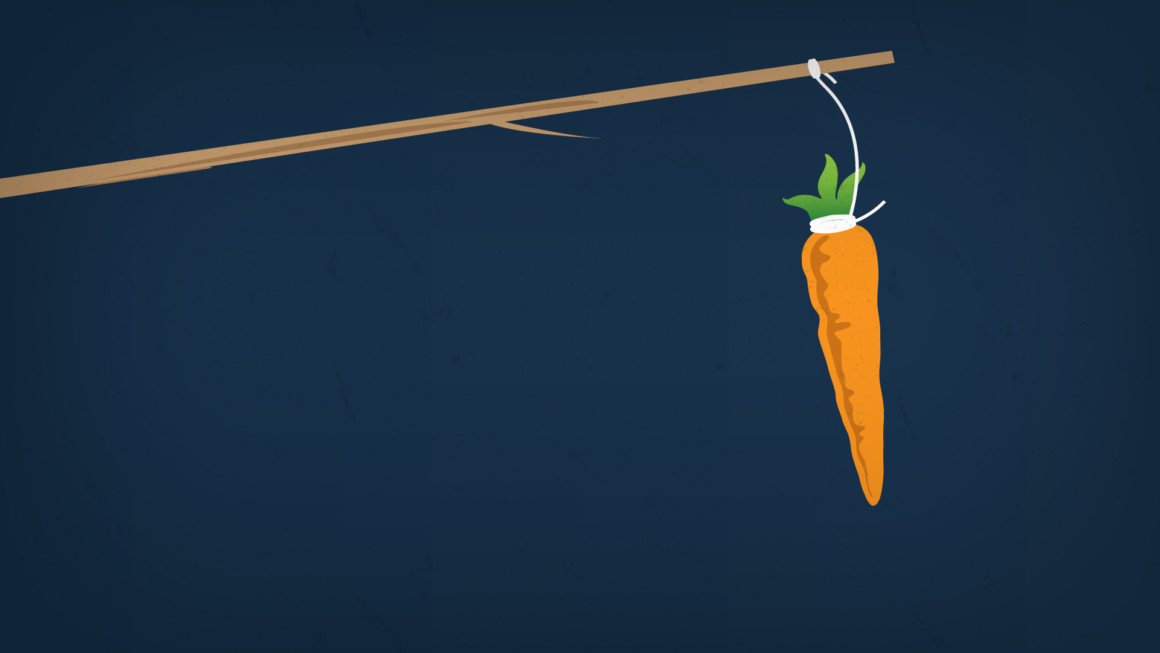 “Should my child be rewarded/punished for getting a good/bad mark at school?” Are reward and punishment the opposite extremes of a response or two independent factors. Psychologists believe that they are independent behaviors and that punishments are two to three times more effective than prizes in modifying behavior. A group of boys and girls were asked to carefully listen to click sounds coming from left and right and for each click to say whether it was from the left or right. Another group of boys and girls had to say whether a flash of light on a screen was on the left or right. Clicks and flashes were emitted rapidly and random making it difficult to be always certain of one’s reply. For every correct or wrong reply, one earned or lost 5, 10,15, 20 or 25 cents. A software program then analyzed results. There was a trend to give a correct reply if the preceding ones were correct and the trend became stronger as the prize grew. Instead, for wrong replies the trend was to not repeat a mistake irrespective of how big the ‘punishment’ was. The results were the same in the two groups and therefore independent of type of stimulus. Winning or losing 25 cents are not opposites. A student who gets 8 points out of 10 for a maths test has more to gain if he understands why he lost two points than why he gained eight. In this view marks should begin from the maximum possible and then go down depending on number of errors. You can go down by very little because the study shows that as a factor of correction a small loss is not very different from a big loss, differently from rewards where small gains are worth less than big rewards. In evolutionary terms we have been selected by a fear of repeating certain errors, (which in the past may well have meant the difference between life and death), rather than the pleasure of repeating a winning behavior.
“Should my child be rewarded/punished for getting a good/bad mark at school?” Are reward and punishment the opposite extremes of a response or two independent factors. Psychologists believe that they are independent behaviors and that punishments are two to three times more effective than prizes in modifying behavior. A group of boys and girls were asked to carefully listen to click sounds coming from left and right and for each click to say whether it was from the left or right. Another group of boys and girls had to say whether a flash of light on a screen was on the left or right. Clicks and flashes were emitted rapidly and random making it difficult to be always certain of one’s reply. For every correct or wrong reply, one earned or lost 5, 10,15, 20 or 25 cents. A software program then analyzed results. There was a trend to give a correct reply if the preceding ones were correct and the trend became stronger as the prize grew. Instead, for wrong replies the trend was to not repeat a mistake irrespective of how big the ‘punishment’ was. The results were the same in the two groups and therefore independent of type of stimulus. Winning or losing 25 cents are not opposites. A student who gets 8 points out of 10 for a maths test has more to gain if he understands why he lost two points than why he gained eight. In this view marks should begin from the maximum possible and then go down depending on number of errors. You can go down by very little because the study shows that as a factor of correction a small loss is not very different from a big loss, differently from rewards where small gains are worth less than big rewards. In evolutionary terms we have been selected by a fear of repeating certain errors, (which in the past may well have meant the difference between life and death), rather than the pleasure of repeating a winning behavior.


Leave a Reply